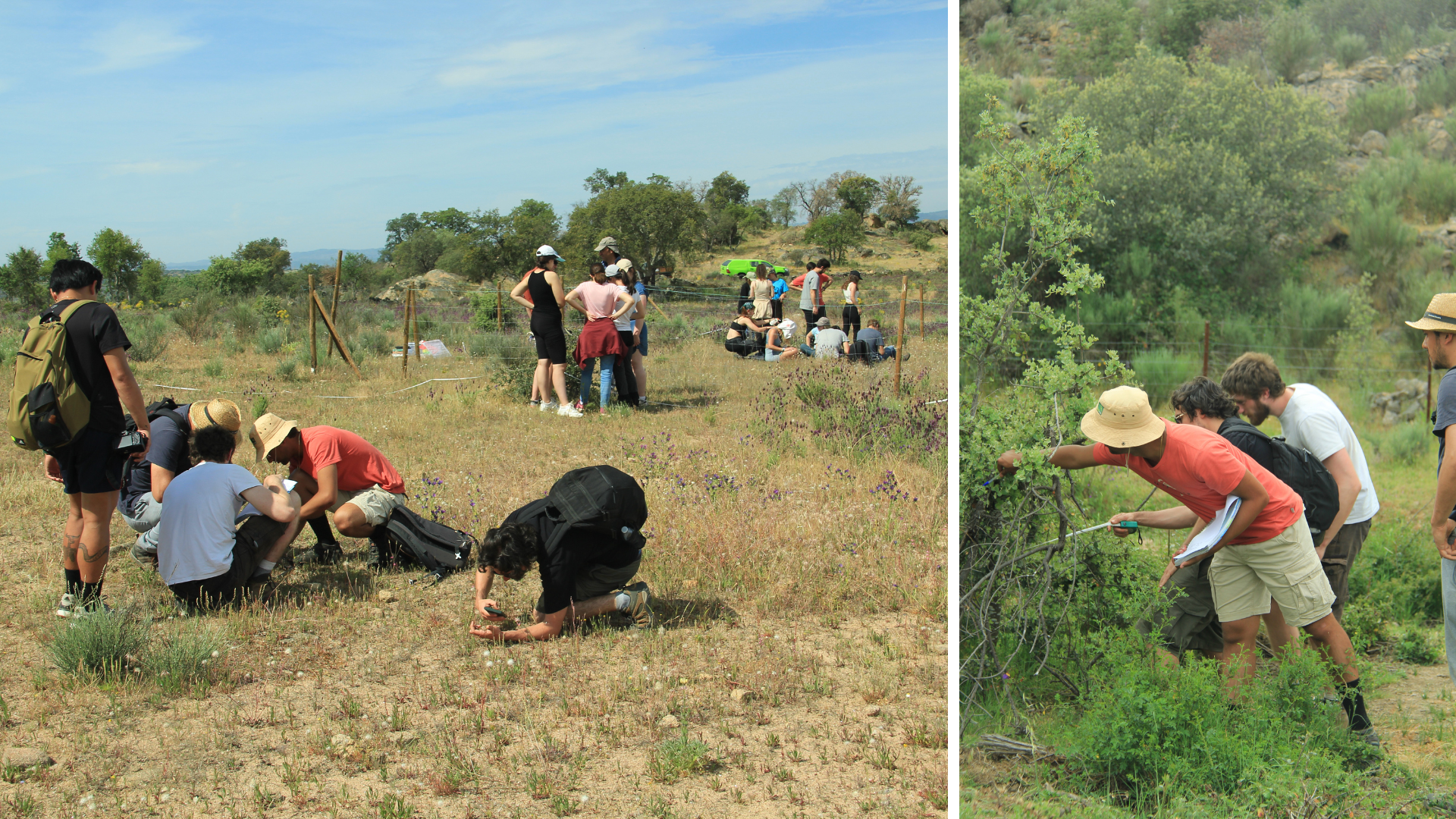The first edition of the field course “Ecological Research in Mediterranean Ecosystems – From Theory to Practice” took place from April 17th to 29th, 2023, in the Faia Brava Reserve, in Figueira de Castelo Rodrigo.
This course was organized by researchers from the Wildlife Unit, João Carvalho, Eduardo Ferreira, and Jorge Henriques (CESAM/DBIO), in partnership with the Department of Communication and Art of the University of Aveiro (DeCA). It also had the collaboration of various national institutions (Transhumance and Nature Association, Municipality of Figueira de Castelo Rodrigo) and international institutions (Autonomous University of Barcelona, Polytechnic University of Madrid, University of Castilla-La Mancha, University of Córdoba, and University of Lublin).
The main objectives of this course were to demonstrate the importance of field studies and the application of the scientific method in ecological studies through practical examples. Throughout the course, various topics related to the dynamics of Mediterranean ecosystems were explored, and the processes governing different components, from soil to vegetation, were investigated. In an integrated and multifunctional perspective, the diversity and ecology of wildlife communities were also addressed (e.g. arthropods, reptiles, amphibians, micromammals, carnivores, and large herbivores).
Recognizing the importance of public communication of knowledge, several instructors from DeCA presented participants with techniques for proper and effective collection of audiovisual material in the field for later production of graphic summaries and video formats. As one of the participants states, “The formal scientific method of observation, hypothesis production, and experimental design based on predictions is incredibly powerful. And combining that with going to the field and testing these hypotheses was a great opportunity. Another great advantage was the combination of scientific research with scientific communication.”
According to João Carvalho (CESAM/DBIO), “from defining scientific hypotheses to data collection in the field, culminating in the communication and dissemination of results, the course provided its participants with a set of tools for a better understanding of the fascinating dynamics of Mediterranean ecosystems.” The possibility of a second edition of this course is being considered by the organizers.
Text by: João Carvalho (CESAM/DBIO) in collaboration with CESAM
